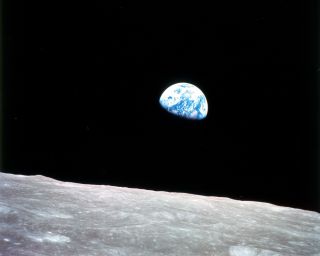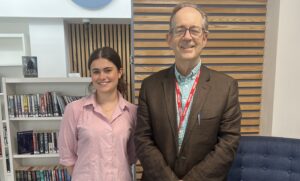Look up. – Amelia Potter
Space report.
Apollo 8, initiated a year prior to ‘The Giant Leap For Mankind’, can teach us many things.
It’s become interesting me to learn about concepts outside of the popular ones we face on today. With many reasons to look around and search for answers, sometimes it can seem that we forget to look up. Look up to the space which we know so little of, in the grand scheme of things, yet is so vast; our atmosphere. In the half term I watched a documentary containing three astronauts and their journey to the moon; Apollo 8. The six-day mission lifted off on Dec. 21, 1968, with its crew of Frank Borman, Jim Lovell and Bill Anders. After settling into orbit around Earth, they performed their final checks and received the “go” from NASA. This meant they were clear to fire their engines and aim for the moon.
What was interesting was many things.
Firstly, the lack of gravity; A concept that you could watch them adapt to but that I couldn’t imagine. It goes against what we are used to every day, the familiar grounding to Earth we experience, disappears. Essentially one could argue, it’s gravity that’s been getting us down.
Secondly, it was the total blackness of space. The crew of three shared this journey and therefore experience, of being contained in a small rocket situated in nothing but space, so much further from what we see as the sky. They saw black, but they also saw the stars, constantly. Awe inspiring scenes.
Thirdly, and perhaps most thought provoking, was what happened when they reached the moon. Before this mission, the people on Earth, had no connection to it, nor perspective from it. These three astronauts were the first who saw Earth from the moon. One of the crew was lucky enough to capture this incredible image on a camera that was given to them for surveying the surface of the moon.
The message that I am perhaps trying to put forward, is what they felt in that moment. They saw how essentially small but visible the Earth was in the vast black of space. How it emitted light. To be so far away from what is so normal to us would have been incredible. To see what we only see a fraction of daily from such a distance seems hard to imagine. As we constantly talk about changing our perspectives, this is a viewpoint I believe we would all benefit from. They admitted that it certainly enhanced much contemplation to what we know to be important, and the insignificance there seemed to be. A particular thing that was picked up upon, was the lack of borders seen. A concept perhaps then, totally man made.
They were the first to see in whole what we only see part of throughout most of our lives. The moment was captured (as seen below) and became highly credited as the never-before-seen view of the Earth.
I therefore encourage you to explore some Apollo missions and journeys initiated by NASA, ‘The First Man’ film illustrates Neil Armstrong’s venture to the moon so is definitely one to watch. It’s important to have a broad perspective and interest in a variety of concepts. As we approach a general election in our country soon, perhaps I can encourage you to not predispose a decision, but instead to beforehand ensure a wider view has been considered.
















Post Comment
You must be logged in to post a comment.